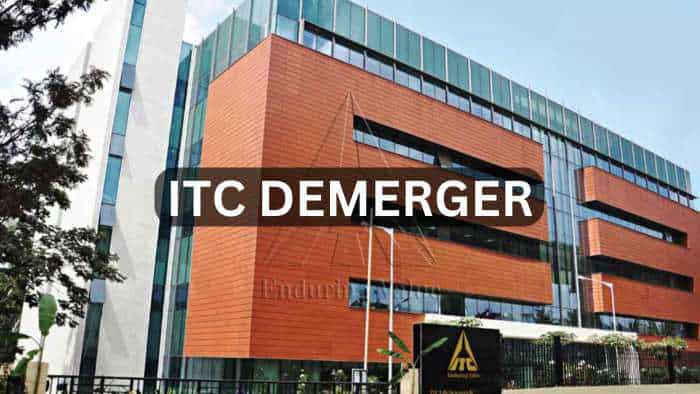FAME needs to be supplemented with steps to boost EV adoption: CII
Transport continues to be the highest oil consuming sector and the use of diesel and petrol grew at 5.9 per cent and 9.9 per cent respectively in the last 10 years. As per government's estimates, the country's import dependency on oil has increased from 78.3 per cent of total consumption in 2014-15 to settling at a new high of 83.7 per cent in the 10-month period of FY2018-19, the chamber said.

Policies like FAME need to be supplemented with measures such as domestic manufacturing of vehicles, batteries and components to boost mass adoption of electric vehicles by 2030, industry body CII said Sunday.
Quoting a study by the Centre, the chamber said India can save 64 per cent of anticipated road-based mobility-related energy demand and 37 per cent of carbon emissions in 2030 by pursuing a shared, electric, and connected mobility future.
Measures like market creation and adoption, domestic manufacturing of vehicles, components and batteries, strategic sourcing of key raw material and skill development in India are needed to support policies like FAME to embrace mass adoption of electric vehicles by 2030, it said.
This would result in a reduction of 156 million tonnes of oil equivalent in diesel and petrol consumption in 2030 and net saving of approximately USD 60 billion in 2030 at present oil prices.
This is also in line with India's vision of reducing oil imports by 10 per cent by 2022, the CII said.
Transport continues to be the highest oil consuming sector and the use of diesel and petrol grew at 5.9 per cent and 9.9 per cent respectively in the last 10 years. As per government's estimates, the country's import dependency on oil has increased from 78.3 per cent of total consumption in 2014-15 to settling at a new high of 83.7 per cent in the 10-month period of FY2018-19, the chamber said.
"Effectively managing energy use with growth and reducing India's oil intensity; developing high-grade energy infrastructure; ensuring an environmentally sustainable future and promotion of clean air and electric vehicles have been carved out as key work areas for CII this year," CII President Vikram Kirloskar said.
With an eye on promoting electric and hybrid vehicles, the Union Cabinet recently cleared a Rs 10,000-crore programme under the FAME-II scheme. The scheme is being implemented over a period of three years with effect from April 1, 2019.
It is the expanded version of the present scheme FAME India I (Faster Adoption and Manufacturing of (Hybrid) and Electric Vehicles (FAME) which was launched on April 1, 2015, with a total outlay of Rs 895 crore.
However, with EV penetration in India currently at just 1 per cent, FAME alone is not enough to reach the 2030 target, CII said, suggesting various measures as prerequisites in this transition. For transport to go truly green, it must also be accompanied by a rising share of renewables along with environmentally sustainable batteries, it added.
Get Latest Business News, Stock Market Updates and Videos; Check your tax outgo through Income Tax Calculator and save money through our Personal Finance coverage. Check Business Breaking News Live on Zee Business Twitter and Facebook. Subscribe on YouTube.
RECOMMENDED STORIES

Rs 55 lakh Home Loan vs Rs 55 lakh SIP investment: Which can be faster route to arrange money for Rs 61 lakh home? Know here

Top 7 Mid Cap Mutual Funds With Highest SIP Returns in 10 Years: Rs 13,333 monthly SIP investment in No. 1 fund is now worth Rs 67,61,971

Top 7 Mutual Funds With Highest SIP Returns in 1 Year: Rs 33,333 monthly SIP investment in No. 1 scheme has generated Rs 4.77 lakh; know about others too

Rs 4,000 Monthly SIP for 33 years vs Rs 40,000 Monthly SIP for 15 Years: Which can give you higher corpus in long term? See calculations

SBI 444-day FD vs PNB 400-day FD: Here's what general and senior citizens will get in maturity on Rs 3.5 lakh and 7 lakh investments in special FDs?
05:03 PM IST










 How many electric vehicles are in use in India? Find out
How many electric vehicles are in use in India? Find out Cabinet clears Rs 10,000 cr Phase-II of FAME project, creation of disinvestment SPV for Air India
Cabinet clears Rs 10,000 cr Phase-II of FAME project, creation of disinvestment SPV for Air India Tata Motors betting big on electric buses - 255 e-buses' orders from six state transport undertakings
Tata Motors betting big on electric buses - 255 e-buses' orders from six state transport undertakings How much power does India need for its cars to go all electric?
How much power does India need for its cars to go all electric?